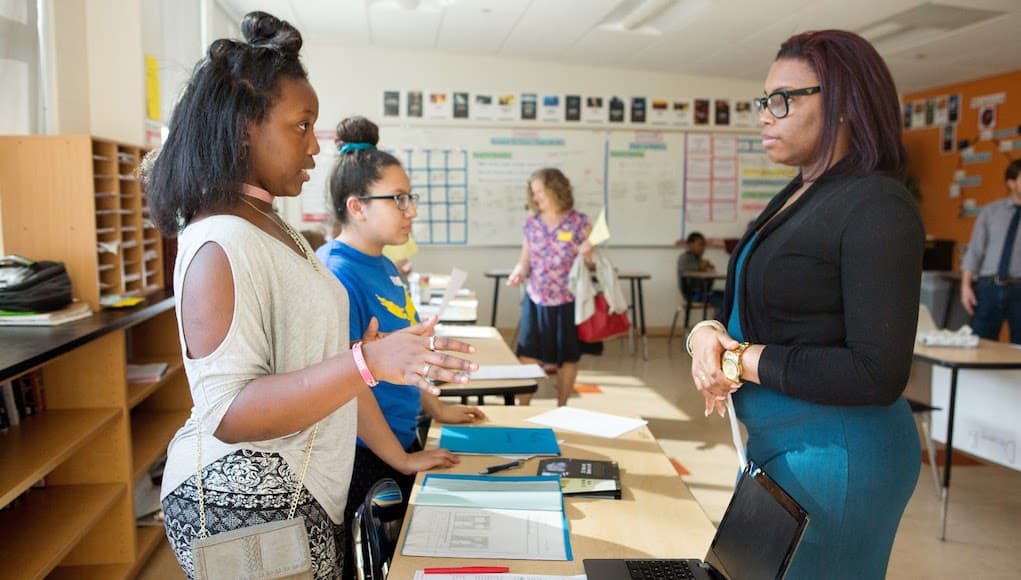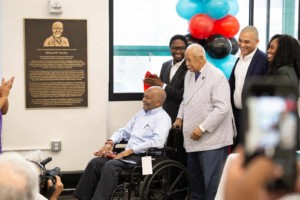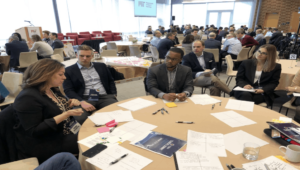Expanding Our Notion of Student Agency

Student agency is a concept currently in heavy rotation in the edusphere. Typically it refers to a student’s ability to direct his or her own learning. When students make choices for their own benefit, taking action that contributes to their growth as learners and as people, they can be said to be exercising their agency.
Studies indicate that student agency is an essential part of effective education. Wherever possible, schools should be providing students with opportunities to choose for themselves the focus of their studies, according to their strengths, interests, and goals. Performance improves when students are engaged and motivated by academic work they perceive as personally relevant and meaningful. Emphasis on personalized learning thus goes hand-in-hand with efforts to cultivate agency.
Most approaches to agency emphasize students’ individuality but pay less attention to their identities. That is, ironically, models of teaching and learning geared toward individual student agency tend to assume that “individuality” works pretty much the same from person to person. What’s missing from this formulation is an important dimension of students’ lived experience: however well equipped to manage their own learning, individual students are always situated within particular contexts in which their race, gender, sexuality, and other cultural markers make a difference. While all individuals may be created equal, not all individuals face the same challenges or enjoy the same opportunities within their particular schools and communities.
There is a broader notion of agency, well developed in cultural studies, sociology, and other academic fields, concerned with how individuals and groups are situated within their social and cultural contexts. An individual’s capacity for managing himself or herself, in this conception, cannot be separated from the possibilities for empowerment and self-determination available to people like them in their surrounding culture and society.
Take a school containing white students, students of color, girls, boys, trans kids, gay kids, students with disabilities, students with deep faith-based values, rich kids, poor kids, English language learners — and some who embody more than one of these differentiators. As individuals, each needs opportunities to discover their passions and make their own choices. But the differences in their identities mean that they also experience the world in very different ways, ways determined in large part by their relationship to the surrounding culture and society. Each is an individual, but they do not all experience individuality in the same way.
Their agency, from a sociocultural perspective, has as much to do with external factors shaping their experience and possibilities as it does with their interior attributes. In fact, many of the positive personal qualities and behaviors educators associate with student agency — social confidence, receptivity to feedback, a willingness to collaborate — are inescapably tied up with how the student’s cultural identity and background are regarded by the people and institutions around them. Underscoring this point, educator Bettina L. Love recently made the case that teaching ‘grit’ to African American students, without also removing the institutional barriers in their way, does more harm than good.
How might an expanded notion of student agency affect teaching and learning? A big part of what students are doing as they make their way through school is learning the modes of communication and behavior that are legitimized and valued in the culture of academics: reading perceptively, thinking critically, reasoning carefully, communicating with clarity and precision, exhibiting personal and social behaviors that lead to success. A sociocultural perspective recognizes that learning is in large part a process of socialization into these conventions.
However, socialization into academics is easier for some students than for others. For some students, the conventions of behavior and meaning-making that they encounter in school are not so different from those they learn at home. For others, the culture they come from bears little resemblance to the culture of school. If they have no prior exposure to the norms of behavior, communication, and meaning-making in academic culture, then they likely begin without a clear understanding of how to conform to expectations or what will count as a successful performance.
Students, thus, should be given to understand that they are engaged in learning the conventions of a particular culture (academia), and that they themselves are situated within that culture in ways that bring to bear their personal identities, backgrounds, and experiences. Recognizing disjunctures between native and academic cultural norms makes it easier to diagnose the source of difficulty some students experience. Further, framing the acquisition of an education in terms of socialization shifts the task for students from remediating “deficits” inherited from their native culture, toward learning to navigate within a new and different set of conventions.
Adding a sociocultural perspective to the concept of individual student agency helps to position learning as a means of empowerment, as a pathway for cultivating students’ capacity for impact in the world. Students should understand that their education gives them tools for advancing their own interests and perspectives. Their individual identities and backgrounds are potential resources that they can leverage in service of contributing their own perspectives, ideas, and efforts to conversations and projects that matter to them.
But students succeed in leveraging their backgrounds and advancing their interests only to the degree that they communicate in ways that are valued and persuasive within the community of academics — that is, by thinking logically, reasoning carefully, reading perceptively, discussing knowledgeably, communicating clearly — in short, by acquiring and exercising the literacy skills of an academically educated person.
Rendering transparent for students how social and cultural contexts shape their personal agency is empowering to them. They can see more clearly and respond more effectively to the challenges and obstacles in front of them as they make their way through school and society. They grasp more fully, too, the valuable contributions they bring to conversations and communities that matter to them, by virtue of their particular identity, background, or experience. Such awareness may also cultivate a student’s empathy for others facing greater challenges, those who by default have less agency simply because of who they are.
For more, see:
- What Counts as Student Agency?
- The Willpower Gap – Misinterpreting Student Agency
- How Schools Develop Student Agency
Stay in-the-know with innovations in learning by signing up for the weekly Smart Update.








0 Comments
Leave a Comment
Your email address will not be published. All fields are required.